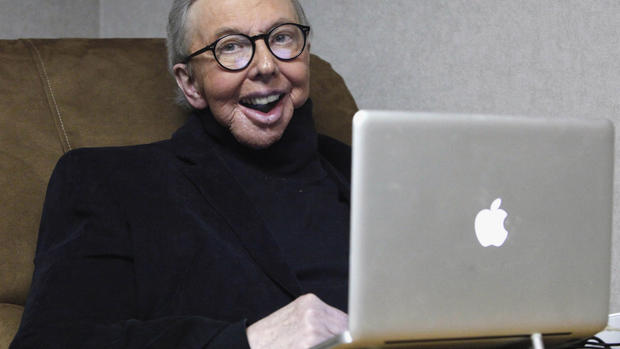David Edelstein: "Thumbs up" for Roger Ebert
(CBS News) You might say Roger Ebert was a screen legend who never appeared in the movies. Our David Edelstein looks back on his colorful career:
This past Tuesday, two days before his death, Roger Ebert announced his cancer had recurred and he'd be cutting back, taking a "leave of presence" -- such a peculiar formulation.
But he wanted like hell to stick around.
As a writer he was direct and unfancy -- good enough to win a Pulitzer -- but in middle age he became a better talker. He spoke in paragraphs, framing his thoughts so they built to a point that went zing, and everyone got it. Everyone.
People see critics as opinion-droppers, elitists. Ebert was anti-elitist. Me and you, he said -- and movies.
- Roger Ebert, famed movie critic, dies at 70
- Richard Roeper: Working with Ebert "like winning the movie lottery"
- Roger Ebert remembered by Hollywood
Few remember the early Ebert, who drank and spent nights at the Playboy Mansion and wrote 1970's "Beyond the Valley of the Dolls" for mammary maven Russ Meyer.
Then he sobered up, and partnered with Chicago colleague Gene Siskel, who was prickly and scattershot where Ebert was lucid.
Often Ebert could barely conceal his contempt for Siskel's fuzzy thinking, but as they became celebrities in their own right they bonded. Kids who grew up seeing films through the prism of their show were thrilled: This was how to talk about a work of art without just spouting, "I liked it," "I hated it."
Here's the important thing: Ebert was a public man in a profession of loners, an ambassador, a kingmaker. He promoted young critics, and started Ebertfest for films deserving attention.
In recent years he reinvented himself, when a lesser man would have thrown in the towel. That came after cancer, the removal of his jaw, the loss of precious speech.
But this cursed event was in some ways a gift. As a blogger, Ebert was peerless, even better on politics and personal stuff than movies.
Via Twitter (@ebertchicago), he kept himself at the center of the debate. He relished the community, the back-and-forth, the instant feedback.
How can you not be inspired by the way the pain made him even more vital?
A "leave of presence," indeed. More than any one thing he wrote, Roger Ebert's legacy is his presence.
For more info:
- David Edelstein at New York Magazine
- rogerebert.com
- "Life Itself: A Memoir by Roger Ebert (Grand Central)
